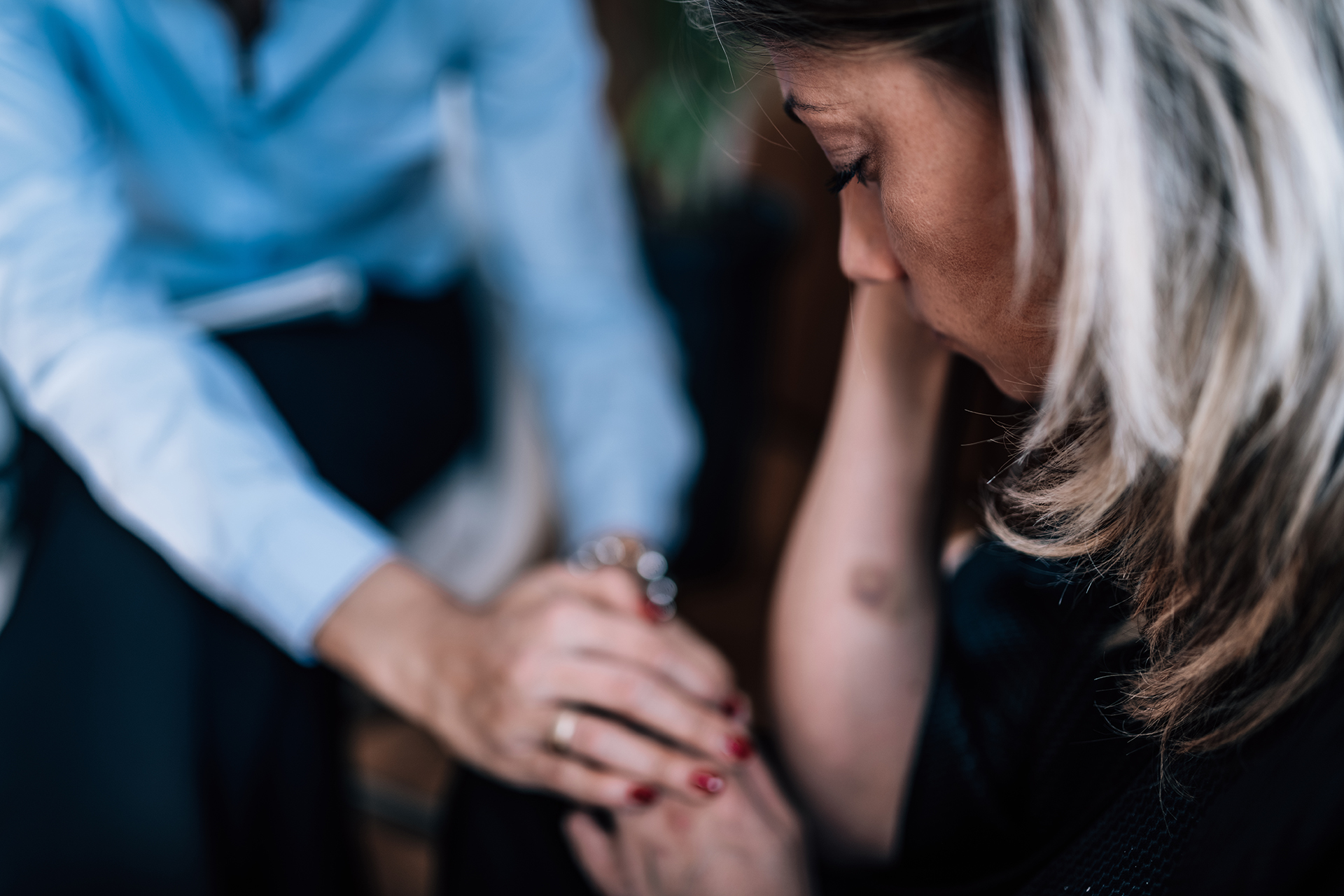Seattle VAWA Attorney
Understanding Violence Against Women Act
The Violence Against Women Act (VAWA) is a federal law established in 1994. It is intended to protect the victims of domestic violence. In addition to other functions, it helps people who have been victims of battery or extreme cruelty at the hands of their U.S. citizen or lawful permanent resident family members get green cards so that they can remain in the United States legally. Some people don’t realize just what a broad range of people VAWA protects, but a Seattle VAWA attorney from ZafiroLaw can help you understand more about VAWA.
Despite its name, it actually can protect people of any gender or age who have experienced abuse. So, if you’re a man who was abused by your wife, you could still seek protection under VAWA. Many Washington state residents also don’t realize that it protects victims of abuse beyond just physical violence. That means if your abuser never physically touched you, but emotionally abused you, threatened you, etc. you can still seek protection under VAWA. You must simply prove that there was “extreme cruelty” at play.
Immigrants Deserve Protections from Domestic Violence and Exploitation
Like many American citizens, foreign nationals can become trapped in an abusive relationship with their spouses, fiancés, or family members. This could occur through threats of never getting their green card application petitions filed or completed, or by threatening to call Immigration and Customs Enforcement (ICE) to deport them.
It is natural for non-citizens to have anxiety or fear about reporting domestic abuse they have endured. Getting law enforcement in communities throughout Snohomish or King County involved may mean answering sensitive personal questions or having your current immigration status scrutinized. At ZafiroLaw, we have firsthand experience with these situations and completely empathize with the terror and pain you are suffering because of your abuser.
There is hope for your situation as an immigrant married to a U.S. citizen or green card holder. If you are subjected to domestic violence, you could qualify for relief under the Violence Against Women Act (VAWA). Even if you have already gotten divorced, there is a good chance you still qualify for benefits under this act, as do your children if abused.
How has Congress Increased Protections for Immigrants Victimized by Domestic Violence?
Over the past thirty years, the United States Congress has made great strides in increasing protections for immigrants who are domestic violence victims. One of the earliest steps taken was the “battered spouse waiver” created by The Immigration Reform Act of 1990. This provision made it possible for victims with a conditional permanent residency status due to marriage to a U.S. citizen to apply for removal of their conditionality without the required assistance of their abusive spouse.
In 1994, another act, The Violence Against Women Act (VAWA), became further inclusive and allowed immigrant domestic violence victims to self-petition for independent immigration relief from their abusive family member or spouse. Six years later, The Battered Immigrant Women Protection Act of 2000 (VAWA 2000), was updated to include additional immigration relief options for victimized noncitizens. The “U” Visa was introduced for abused immigrants, and those who were sexually abused or trafficked could obtain a “T” Visa.
When legislators failed to reauthorize the bill in 2019, many immigrants worried they had no way to get relief. Fortunately, all of VAWA’s provisions are still in full force because it does not contain a sunset clause that would set an expiration date.
Who Does VAWA Protect?
If you need the benefits provided under VAWA immigrant protections, one of the following experiences should apply to your situation:
- You have endured battery or extreme cruelty at the hands of your U.S. citizen or lawful permanent resident spouse or ex-spouse.
- You have endured battery or extreme cruelty at the hands of your U.S. citizen or lawful permanent resident son or daughter.
- You have endured battery or extreme cruelty at the hands of your U.S. citizen or lawful permanent resident parent if you are 21 or younger. If you can prove that the delay in filing was caused by the abuse, you can file until you are 25.
VAWA Self-Petition Protections in Washington
If you qualify, you can self-petition for a green card under VAWA. You do not have to inform the person who abused you that you are filing and your information will be kept private. To file your self-petition, you will need to provide evidence of the abuse, proof that you shared a residence with the abuser, evidence of good moral character, and other forms. An experienced Seattle VAWA attorney can help you with your paperwork and documentation and can help you avoid mistakes in the process that could endanger your status.
How to Obtain a VAWA Self-Petition in Washington
The first step to filing a petition for VAWA self-petition is to compile all the required documents and evidence needed for your claim. This includes completing Form I-360 and/or Form I-485 (depending on whether you are inside the United States or abroad), securing two passport-size photographs, and making copies of relevant government-issued documentation like birth certificates, marriage certificates, and identification. You will also need to prove your eligibility for the VAWA self-petition.
VAWA self-petitioners will file their application through the USCIS Vermont Service Center, at the address listed here. After submitting your application, you will wait for approval or further instruction from the relevant agency. You will likely receive a notice for biometrics services, which can be completed at your local Washington Application Support Center. Furthermore, you may be required to attend an interview. Once all steps are completed, you will receive a written decision notice to your address in Washington.
Frequently Asked Questions
For any person who is facing abuse, navigating the requirements and constraints of VAWA can seem like an impossible responsibility. This area of the law is complex and it is not uncommon for individuals to have questions surrounding this topic. For this reason, we strive to make the information as accessible and reliable as possible. The following are some of the most common questions we receive from current and prospective VAWA self-petitioners.
What Do I Have to Prove to File for VAWA Self-Petition?
To file for a VAWA self-petition, you will need to have certain documents and evidence to prove your claim. In addition to Form I-360, a VAWA self-petitioner will be required to submit additional information with their claim, including:
- Your relationship with your abuser. This can be proven through your marriage certificate or your birth certificate, depending on the nature of your relationship.
- That your marriage was in good faith. To have a successful VAWA claim, it is necessary to prove that you and your spouse (or former spouse) were married legitimately and in good faith. To prove this, many people include photographs, notes, letters, or emails between them and their spouse. It can also be helpful to include information on shared finances and declarations from friends and family as well.
- The immigration status of your abuser. To file for VAWA self-petition, it is necessary to prove that your abuser has legal immigration status in the United States. This can be in the form of birth certificates or government-issued identification from the United
States government, like a Green Card. If you are unable to obtain these documents, it is possible to include only the abuser’s A number and the reason why it is impossible to obtain their documents. - Shared residence with the abuser. Self-petitions must demonstrate that they currently live with their abuser or used to live with their abuser. Both the self-petitioner and the abuser must be listed on the documentation. Typically, rental or lease agreements, utility bills, or children’s school records suffice.
- That abuse occurred. While there are several options to prove that abuse occurred, obtaining this evidence can be emotionally difficult and confusing, as law enforcement typically must be involved. Restraining orders, police reports, 911 transcripts, court records, medical records, or documentation from domestic violence shelters are typically considered appropriate evidence.
- Good moral character. Asserting that you are of good moral character is often as easy as proving that you have not experienced trouble with the law. It can also be helpful to secure declarations from individuals in the community and/or local police clearance letters.
Do I Have to Have the Police Involved?
While the evidence that a person submits in their VAWA petition varies from case to case, it is often helpful to include official documentation from the police. This can be helpful to prove that abuse occurred and that a self-petitioner is a person of good moral character. In this way, it is not required to have the police involved, but it can be incredibly beneficial to a person’s application.
Can Your Children Be Included in Your VAWA Self-Petition?
It is possible for VAWA self-petitioners to include their children in their claim. If a self-petition is approved, all derivative beneficiaries (i.e., children) are granted both the same immigration status and priority date as the self-petitioner. This means that they can apply for Lawful Permanent Resident status once a visa is available. It should also be noted that as a VAWA self-petitioner, you are also able to add a child that was born after the petition was already approved.
Read More About Immigration Status & Child Custody
How Can a Seattle VAWA Attorney From ZafiroLaw Help Me?
You must understand that domestic abuse can happen in countless ways to the most loving of people. If you are a foreign national that is being controlled by abusive tactics involving threats of calling Immigration and Customs Enforcement (ICE) or having your immigration papers and passports taken away, or by physical violence, you have options.
At ZafiroLaw, we are a Seattle-based law practice that has extensive experience helping clients petition for green cards under VAWA. If you think you may qualify, we encourage you to contact us. Give a Seattle VAWA attorney from our team a call at (206) 547-9906. We serve communities throughout Snohomish County and King County, Washington.


